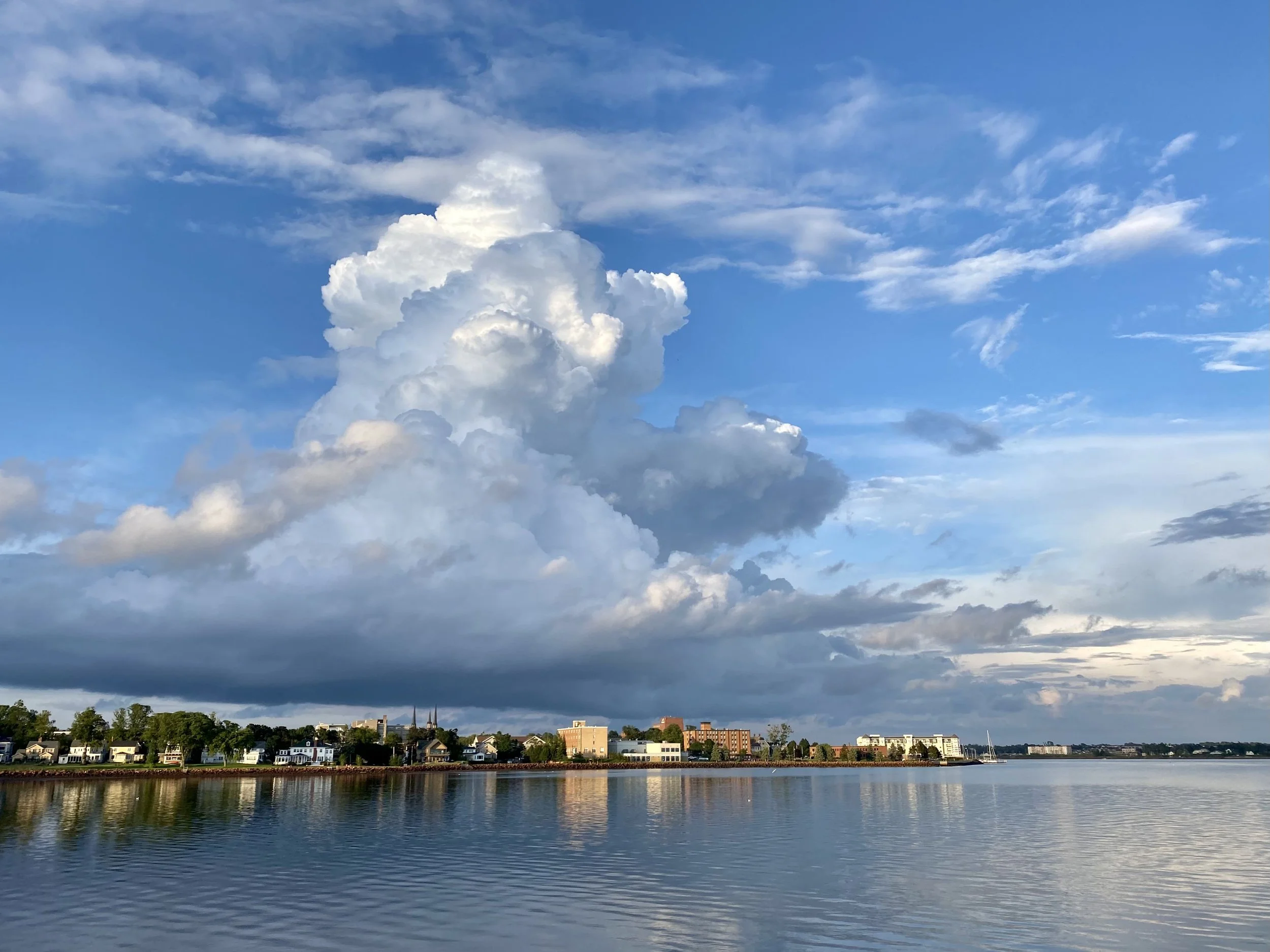Ten great things about my first decade living with a j-pouch
One of the questions I always asked my doctors as I was considering j-pouch surgery was, “how long will the pouch last?” I never got a straight answer because there really was none. Much like living with ulcerative colitis, and other inflammatory bowel diseases, your mileage may vary. One person’s pouch could be troublesome, another’s could be fantastic. My experience has definitely been the latter.
I sometimes feel guilty about that. I know people who struggle with their pouches, and I wonder what it is about my pouch that has resulted in a decade of relative ease. I also wonder if I’m just crossing off the days until something goes wrong with mine. I sure hope that’s not the case, and I do try to stay optimistic on that front. That’s why the title of this post has the word “first” in it. I hope I can report back in another ten years and let you know that things are just as boringly good as they are now.
I have much to be grateful for in my life, and my j-pouch always resides near the top of that list. After having my life consistently disrupted by ulcerative colitis, and made problematic in different ways after my first surgery, I’ve lived the last ten years with a kind of normalcy. There had been times during the worst of my UC flare-ups and surgical complications that even mundane things like going to work seemed out of reach. It’s for that reason, that the normal areas of my life outlined below sometimes feel pretty great.
Bathroom Trips
I know it’s weird, but I still look back fondly on the last few proper, fully-formed, one-a-day bowel movements I had before my surgery. There was a brief period where the biologic medication I was on worked wonders, including the ability to have easy breezy BMs. I didn’t even have to take my phone into the bathroom for them! Ah, memories.
Those days are gone, but what I have now isn’t bad at all. I will have 7-8 times bowel movements a day, and each trip to the bathroom does require at least a few minutes of sitting and waiting out the possibility of more poop comin’ down the line after the initial release. I rarely visit the bathroom without my phone, and that lets me stay on top of my emails, browse online shopping sites for things I’ll never buy, and so on. It’s not as though the time spent in the bathroom are wasted minutes.
I can pass gas on its own, most easily when lying on my side, but also while sitting. I can also urinate without passing stool, which may seem like a duh statement to some people, but I know some people with pelvic pouches can’t always separate those bodily functions.
Most importantly, I can hold in the bowel movements when I need to, but my daily life has a pretty reliable routine to it, so the bathroom trips usually just slot in without extended periods of having to hold it in.
Work
My j-pouch largely hasn’t interfered with my work life. But for a time, while I was working a particularly demanding job, I did notice my health taking a turn for the worse. It didn’t manifest in bowel issues, but rather in back pain, joint pain, mouth sores, and muscle weakness. It wasn’t easy to leave that job, because it provided a meaning I’ll likely never find elsewhere. I sometimes feel as though I could have accomplished more in my career if my body wasn’t quite so sensitive to stress. In fact I’m sure I could have. But I decided to prioritize my health because I’d be no good to any organization or any cause without it.
I recently passed the five-year mark at one of my jobs, where I do marketing and communications work. I also just passed the one-year mark at my other job, where I announce traffic, news, weather, and business reports.
I’m particularly happy that I was able to get back into broadcasting, which I moved away from in part because of my UC. I remember going through some of my traffic reporting shifts while in a full-on flare, taking spare pairs of underwear to work, and sometimes having to utilize them on occasions when I couldn’t get to the toilet in time. I’m very lucky that I was given another chance to be on-air by the same people who first gave me my first announcing gig. It’s wonderful when good people from your past pop up again.
Relationships
With my j-pouch I’ve dated, had sex, ended relationships, been dumped, and found love. I’ve been with my girlfriend for over five years now, and we’ve lived together for the majority of that time. She’s been graciously accepting and accommodating of my surgically-altered GI tract, and we make it work in our one-bathroom unit very well. We have fun together, we support each other during difficult times, and I’m very grateful to be with her.
Exercise
It’s purely anecdotal, but I feel as though regular exercise has kept my pouch in good shape for these past ten years. Plus, being active generally puts me in a better state of mind and gives me something to look forward doing again and again.
I used to run quite regularly, but over the last five years or so, I’ve started cycling more and running less. I still get some running, and I try to lift weights a few times per week. I love long walks and when time permits, I’ll get out to a nearby conservation area for a hiking trip.
One issue I had in the first few years since my j-pouch surgery was seeing blood in the bowel movement that immediately followed exercise. I can’t tell you what exactly changed, but that doesn’t happen anymore. Yay, I guess?
Caregiving
When I’ve needed to be there for family members during as they’ve confronted health challenges, my j-pouch made my presence possible.
My dad faced a myriad of health issues in the span of three years: stroke, blood cancer, and kidney failure which led to dialysis. He was hospitalized for four months before he passed away in 2019. I visited him almost every day in that stretch. And before that I would take him to his cancer treatments, to dialysis, to doctor’s appointments.
Caregiving often left me sad, angry, tired, and frustrated. But I’d take all those feelings over the feelings of guilt and helplessness I would have felt if I couldn’t have been there.
I now help take care of my uncle, who luckily isn’t facing the sort of severe illness my dad did, and it comes with all the same exasperating feelings that I still in a strange way feel lucky to experience.
Eating
I pretty much eat and drink what I wants, when I wants. I drink very little alcohol because I just don’t care for the stuff, and the foods I avoid are ones I don’t like, not ones my body can’t tolerate. My pouch handles most of what I throw down there quite well. That’s a pretty amazing kind of freedom that you can really appreciate when you’ve gone through periods of strict dietary restrictions, as I have.
Check-Ups
I used to hate calling my gastroenterologist’s office because it meant something was very wrong. Now those calls are to schedule routine tests and check-ups. I’ve gone for pouch scopes (flexible sigmoidoscopies) every two years since my last surgery, and they’ve all made for boring viewing for my gastroenterologist – which makes both of us happy.
I recently started going for fecal calprotectin tests annually, to monitor for inflammation outside of the scopes. So far so good on that front too.
Ontario’s/Canada’s healthcare system has been much maligned since the COVID-19 pandemic, and some of that criticism is warranted. But for what it’s worth, the care I’ve received in the years I’ve dealt with IBD has been exceptional. Amid all the negative press, it can be easy to overlook all the patients who go through the system and come out healthier than when they entered, and it’s worth remembering that happens with remarkable regularity.
Mental Health
I have shit days, like everyone else, but they’re rarely, if ever, related to my gut health. And when those bad days come around, I lean on some of the practices I learned in mindfulness classes I attended after my first, complication-ridden surgery. For the most part, I try to remind myself of all the good I have and feel grateful for it.
Travel
There was a stretch of a few years where I was contracted by a pharmaceutical company to provide input on information materials for UC patients. Part of that work involved travel, including trips to Vienna, Copenhagen, Las Vegas, New York, and elsewhere. I roamed around new cities, only got lost once (Vienna, where my phone died), and came home with loads of happy memories. I can recall only one dicey moment where I found myself in an unfamiliar place and really needed to use the bathroom, but I was able to hold it in until I found a place to go.
More recently I’ve made trips to two of my favourite places on earth, Halifax and Charlottetown (the latter pictured above), and got to explore and enjoy all the beauty they offer.
I’m not a big travel guy, but I feel confident that I can go on trips, even to new places, and manage to fit in bathroom trips without too much trouble.
Community
Related to the travel, and specifically those trips for the patient information materials, I’ve been able to meet a number of other IBD patients and j-pouch owners. That’s in addition to the connections I’ve made locally at patient support groups and volunteer groups. I will forever hold those meet-ups and conversations as some of the best moments in my life.
Those connections mean so much to me, even though I’m not in contact with those people anywhere near as much as I used to. If you happen to be one of those people reading this now, just know how grateful I am that our paths crossed.
And there you have it, a successful decade with a j-pouch!
I’ll tack on one last, 11th element to this list. During my first hospital stay, I met another UC patient who was upbeat in spite of the similar challenges he was facing. He met up with me a few months after we were both released, after he read one of my darker, dourer blog posts at a time when I was really struggling. He said that he hoped one day the hardest thing I’d have to deal with is choosing the colour of my fancied car, an Acura TLX.
In 2019, I choose black.

